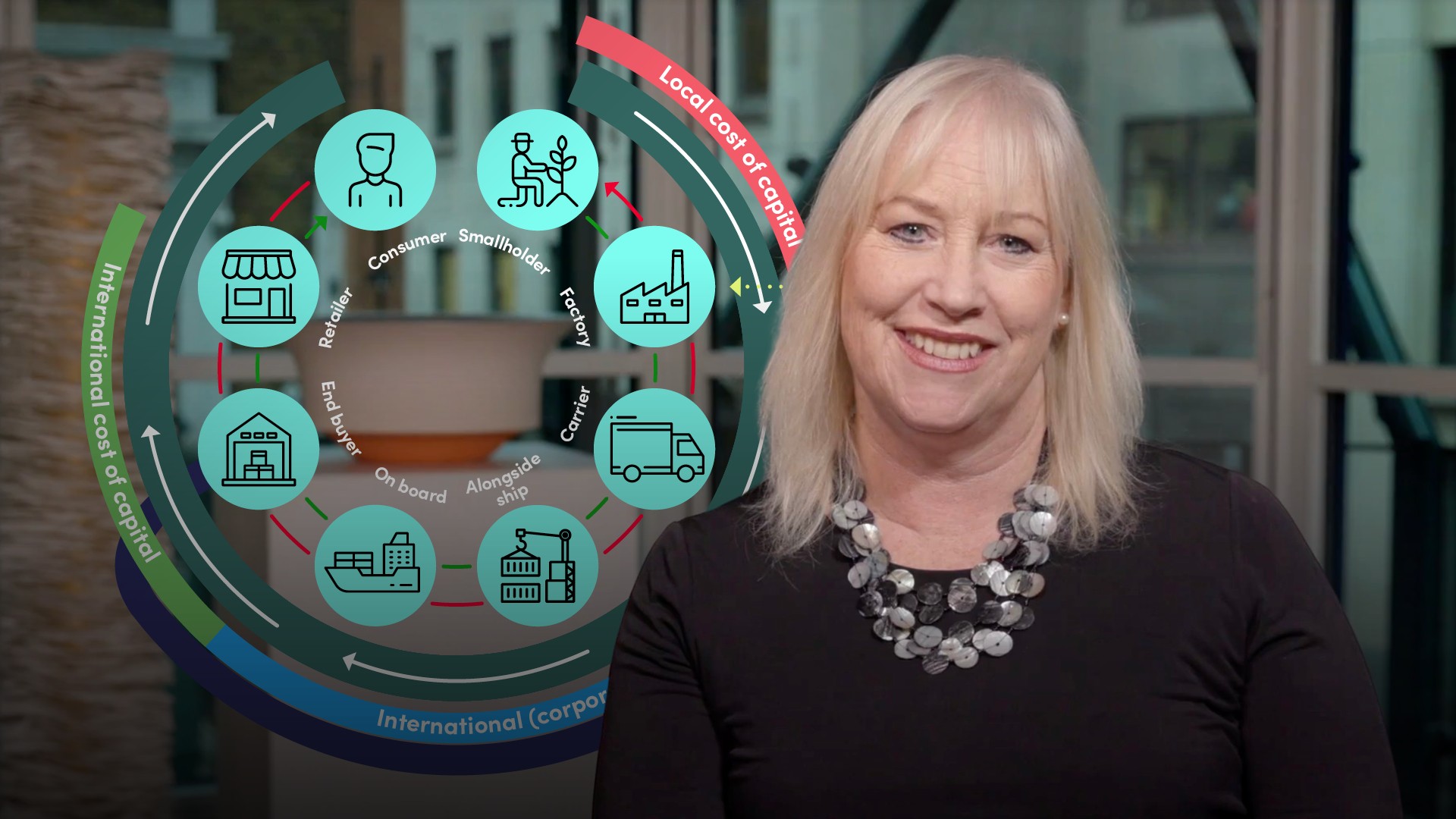
Sustainable Finance Supply Chains Using Blockchain

Shona Tatchell
25 years: Trade finance & sustainability
Shona references case studies to disclose the sustainability issues regarding modern supply chains and offers the application of blockchain as a potential solution.
Shona references case studies to disclose the sustainability issues regarding modern supply chains and offers the application of blockchain as a potential solution.
Subscribe to watch
Access this and all of the content on our platform by signing up for a 7-day free trial.

Sustainable Finance Supply Chains Using Blockchain
8 mins 8 secs
Key learning objectives:
Identify the issues with modern supply chains
Explain the application of blockchain to improve the sustainability of supply chains
Overview:
This involves the design, implementation and application of blockchain technology to incentivise improvements in sustainability standards in agricultural supply chains.
Subscribe to watch
Access this and all of the content on our platform by signing up for a 7-day free trial.
What is the Modern Slavery Act?
This would compel most companies in the UK to make transparency statements and disclose whether there is any evidence of forced labour, child labour or slavery in their supply chains and, if discovered, to disclose the action they are taking to combat this.What are the issues with modern supply chains?
- Supply chains are notoriously opaque and disconnected
- Suppliers are not incentivised to be honest and transparent
- They bear all the cost of audit and of raising their standards, and in return see no benefit for doing this
- For buyers at the top of the chain, this inability to control the risk of labour malpractice and of environmental misdemeanour is huge, and the data to visualise this is untrustworthy
How could we make supply chains in a bank more transparent?
As a bank, build a traceability solution that could record the movement of clients goods through the supply chain and the audit certificates that attach to them, then to record this information immutably and uniquely in a way that could not be duplicated or faked.
If we could take the inputting of this data into a blockchain, so that the record can be shared with buyers and their bankers, and link this to paying the suppliers faster at a better price, then perhaps we could create a process that directly incentivises them to change their behaviour.
What was the Trado consortium?
The Prince of Wales and UOC together convened a diverse group to build and test the exchange of transparent, trustworthy supply chain data in return for preferential access to lower cost working capital financing.What did the Trado consortium do?
The consortium set out to test the application of blockchain technology to facilitate this aim and decided to test this on a large agricultural commodity supply chain. Two of the largest in the consortium were Unilever and Sainsburys, the UK supermarket chain, and they shared a similar supply chain - that of tea from a particular estate in Malawi. This tea is sourced from a group of 10,000 smallholder farmers who supply their raw produce to a tea processor on the estate from where it is then dried, blended and bagged and sold to Unilever.Why is the sustainability of this supply chain uncertain?
These farmers have the following:- Low literacy levels
- No land rights
- Earnings that are 50% below world poverty levels
- Trapped in a bubble of economic disadvantage
Living in the southern part of Africa, beset by impacts of climate change, results in insecurity for these farmers, and then coupled with the lack of access to credit and capital for investment, means that the sustainability of this supply chain is very uncertain.
How do these uncertain economic and climatic situations pose risks to Unilever?
There is a possibility of the farms going out of business, but also of them engaging in poor farming practices, overusing harsh pesticides or fertilisers, deforesting the surrounding countryside to try and expand farm land to compensate for having degraded the soil and employing child or forced labour to cut costs makes for an unsustainable supply chain for Unilever that carries with it huge regulatory and reputational damage.How can blockchain technology be used to combat this?
Blockchain technology can connect the traceability of tea from the farmers right through the supply chain to Unilever, mapping the flow of goods and to link to that preferential financing terms, provided by banks, subject to certain economic conditions being met, such as employing more sustainable practices.Subscribe to watch
Access this and all of the content on our platform by signing up for a 7-day free trial.

Shona Tatchell
There are no available Videos from "Shona Tatchell"





























